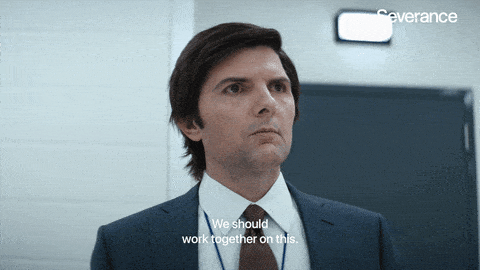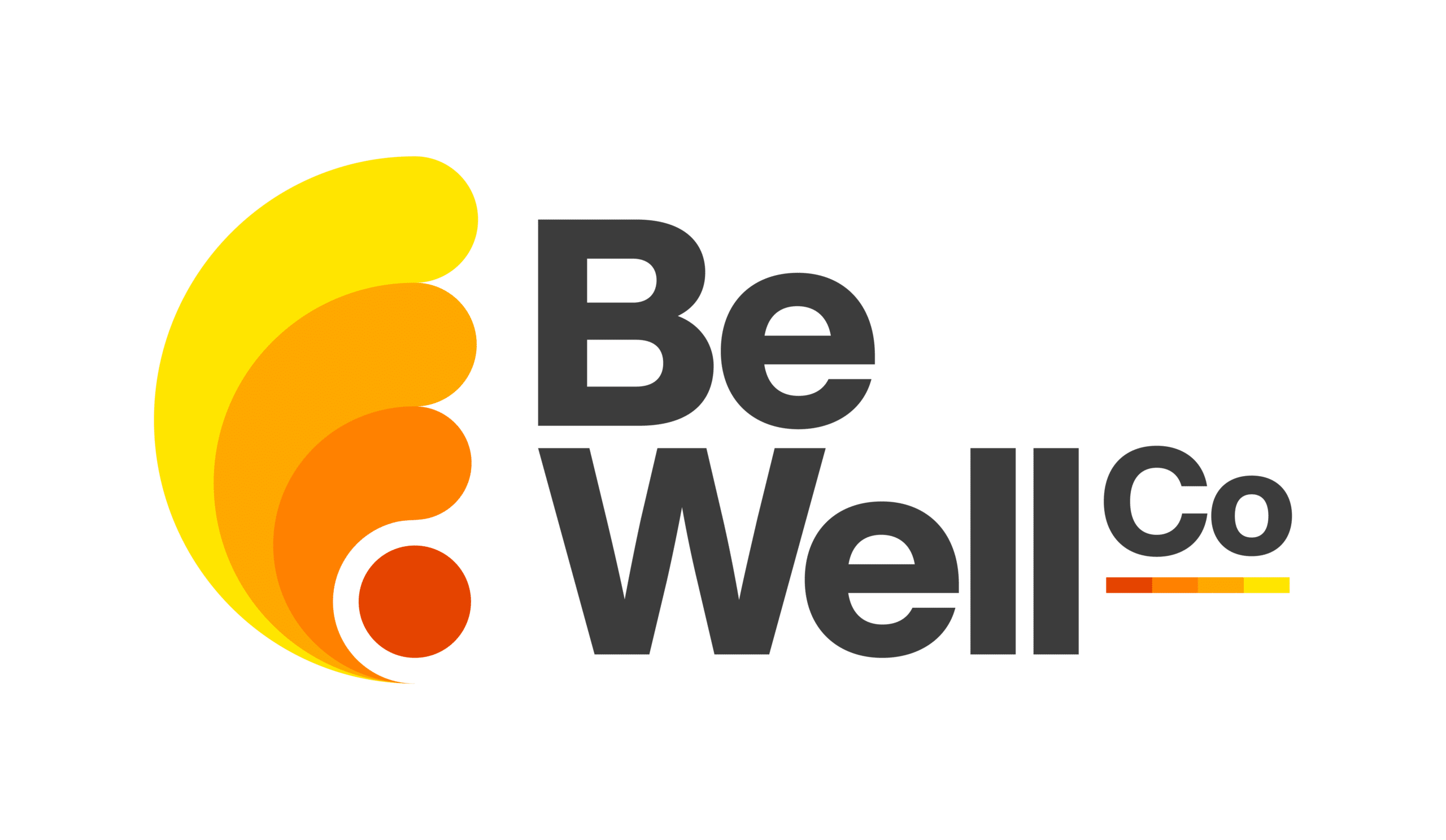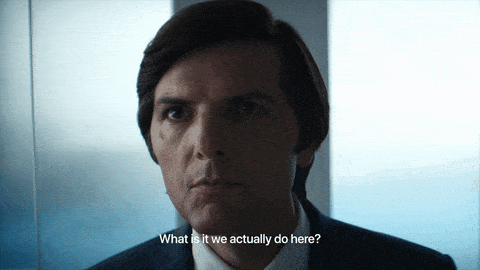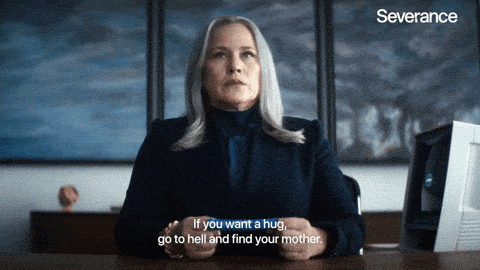Apple TV’s Series Exploring Work, Life, and Everything In Between
At Be Well Co, we’re interested in how work shapes our lives—and how we shape our work. In this new blog series we explore pop culture moments that tap into the modern workplace experience, helping us better understand the shifts happening around us. From hit TV shows to viral topics, we’ll unpack what they reveal about work, wellbeing, and the future of how we live.
Apple TV’s Severance may be set in a dystopian world, but its exploration of work-life dynamics, employee wellbeing, and corporate ethics resonates deeply with modern workplace challenges. And audiences can’t get enough. Severance has become Apple TV+’s most-watched series, surpassing Ted Lasso. In its first week, the second season garnered nearly 600 million minutes viewed, ranking fourth among original series on Nielsen’s streaming chart.
These impressive statistics highlight the show’s resonance with audiences, particularly as it delves into themes of work-life balance and corporate culture that have become increasingly pertinent in the post-pandemic era.
Work-Life Balance: The Extremes and the Reality
In Severance, employees undergo a procedure that completely separates their work and personal lives, a concept that dramatises the tension between professional and personal identities.
While this extreme scenario is fictional, it prompts reflection on real-world struggles—especially in an era where remote work blurs boundaries.
Our research reinforces how stark these differences can be. When employees don’t feel connected at work, they disengage, leading to lower productivity and wellbeing. Studies show that when employees engage with structured wellbeing strategies, they experience greater satisfaction and resilience. Addressing these challenges is key to creating sustainable workplace cultures and improving employees’ wellbeing.
Important Themes in Severance
Employee Wellbeing: The Foundation of Success
The psychological toll of toxic workplaces, a central theme in Severance, highlights the need for environments where employees feel supported and valued. Modern research affirms that workplaces prioritising mental health report higher productivity, lower turnover, and greater innovation.
When employees feel empowered to manage their wellbeing, the ripple effects extend far beyond individual outcomes. It highlights the role of leadership in creating spaces where people thrive, even amidst external pressures or uncertainty.
Corporate Control, Surveillance, and Ethics
Severance raises unsettling questions about corporate control and surveillance, mirroring real concerns about privacy in today’s workplaces. Ethical boundaries surrounding employee monitoring and data use are critical considerations in maintaining trust and autonomy.
Balancing oversight with respect for individual rights is key. Organisations that foster transparency and prioritise ethical practices not only protect employee trust but also strengthen their culture of accountability.
Identity, Purpose, and Meaningful Work
A central question posed by Severance is the role of work in shaping identity. As employees increasingly seek purpose and alignment with their values, organisations must consider how their mission resonates with their teams.
Purpose-driven workplaces not only attract top talent but also cultivate deeper engagement. Aligning organisational goals with employee aspirations creates a shared sense of fulfilment that benefits both individuals and businesses.
Technological Ethics and the Future of Work
While Severance’s memory-severing technology is science fiction, it raises ethical questions relevant to today’s rapidly evolving workplace technologies. With advancements in AI, data analytics, and digital tools, organisations face a responsibility to adopt innovations thoughtfully.
Ensuring that technology enhances wellbeing rather than undermines it requires careful consideration. Businesses that navigate these challenges responsibly will shape a future of work grounded in ethics and human-centered design.
Corporate Culture and Transparency
The rigid, opaque corporate environment in Severance reflects the pitfalls of excessive bureaucracy and poor communication. In real workplaces, these issues can lead to disengagement and conflict.
Prioritising transparency, open dialogue, and psychological safety are foundational to building thriving teams. Leaders who champion these principles empower their teams to innovate and collaborate effectively, driving meaningful progress.
A Mirror to Today’s Workplace
Integrating identities meaningfully in the workplace is essential for fostering a healthy work-life balance. Severance illustrates the perils of extreme separation between professional and personal selves, highlighting the importance of a more holistic approach. By acknowledging employees as whole individuals, organisations can create environments that promote both personal wellbeing and professional fulfilment.

To achieve this integration, organisations can implement several key strategies:
- Encourage Flexible Work Arrangements: Offering options such as remote work or flexible hours allows employees to better balance their personal and professional responsibilities, leading to increased satisfaction and productivity. thehrdigest.com
- Set Clear Expectations and Boundaries: Establishing transparent communication about work demands and respecting personal time helps prevent burnout and fosters mutual respect between employees and management.
- Provide Employee Wellbeing Programs: Implementing initiatives that support mental and physical health demonstrates a commitment to employee wellbeing and can enhance overall organizational performance. thehrdigest.com
By embracing these practices, businesses can move beyond the outdated notion of severing work and personal identities. Instead, workplaces can cultivate a culture where integration is not only accepted but encouraged, empowering employees to thrive both personally and professionally.
To sum it up
Severance is an extreme example of separating work and personal life, while at the other end of the spectrum, a workplace with no clear boundaries or structure can blur the lines,.
Both approaches have their challenges, and the reality is that no one-size-fits-all solution exists. Be Well Co. advocates for workplaces to take a thoughtful, evidence-based approach to work-life balance—one that aligns with the unique needs of their people and culture.
Instead of rigid policies or extreme solutions, organisations should focus on creating environments where employees feel supported, engaged, and able to integrate their professional and personal identities in a meaningful way.
Want to Read More?
 Pop Culture
Pop Culture
The White Lotus: The Truth About Human Suffering
The White Lotus wrapped up last week—and we’re still reeling. Set among the Buddhist temples and lush, humid jungles of Koh Samui, Thailand, Season 3 returns to the luxury resort where the rich come… 16 Apr 2025 4 min read Languishing
Languishing
I’m Languishing, What now?
When we launched The Face of Languishing, our goal was to give people a word for the feeling so many of us couldn’t quite name. And the response was overwhelming. “I saw your… 09 Apr 2025 4 min read Workplace
Workplace






